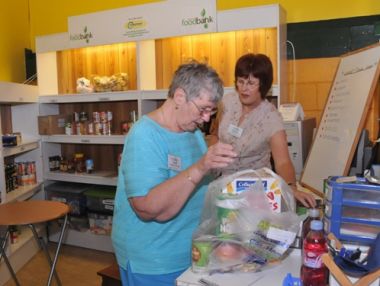CofE report slams local authorities for failing families in crisis
More people are turning to foodbanks because local authority crisis schemes are failing, according to a report from the Church of England and The Children's Society published today.
The hard-hitting report, Not Making Ends Meet, says schemes aimed at providing food, fuel and furniture to people in crisis are helping relatively few people compared to the former Social Fund.

It says a lack of publicity, bureaucratic hurdles, and restrictive eligibility criteria appear to be deterring people from applying to Local Welfare Assistance schemes, leaving them to rely on a patchwork of crisis support networks of varying effectiveness.
The report cites one mother fleeing domestic violence with her children who said she barely ate for five weeks while she waited for her new benefit claim to be processed. She said if it hadn't been for financial help from friends and family she would probably have returned to her abuser.
Another mother and her three children, who were made homeless after a fire, endured months of bureaucracy to access the help they needed.
The report depicts a huge fall in the number of people helped by local authorities.
The Children's Society chief executive Matthew Reed said: 'Families in need of financial crisis support are often experiencing one of the hardest times of their life, such as fleeing domestic violence or experiencing a serious mental or physical health problem.
'It's vital that when they need help to buy food or nappies, put money on the electricity meter or replace a broken fridge that they can access this help quickly and easily. Instead, families who are in desperate need may find there is nowhere to turn.
'Local charities are having to step in to provide the safety net that the government and councils used to, relying on donations and volunteers to do so.'
The bishop of Durham, Paul Butler, said: 'A financial crisis can affect anyone, at any time in their lives, and as a country, both state and civil society, we have a moral duty to care for people at the hardest times of their lives.
'Voluntary and community organisations show compassion as they support individuals and families in crisis and attempt to make up for current shortcomings in state support.
'But all too often, the support is fragmented, and the experience is bewildering to those seeking help, who frequently find themselves in a cycle of repeated crisis.'
He called for 'strong leadership from local authorities' and for 'holistic, joined-up support' for people in need.











